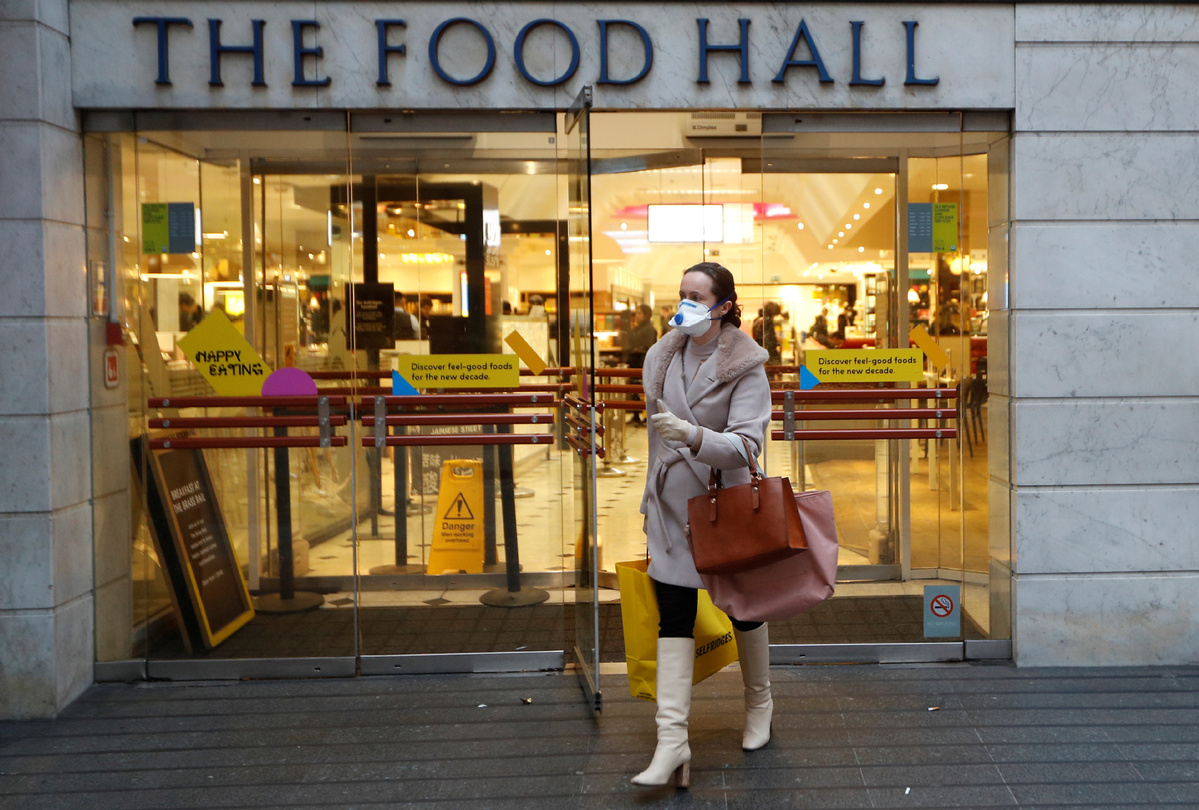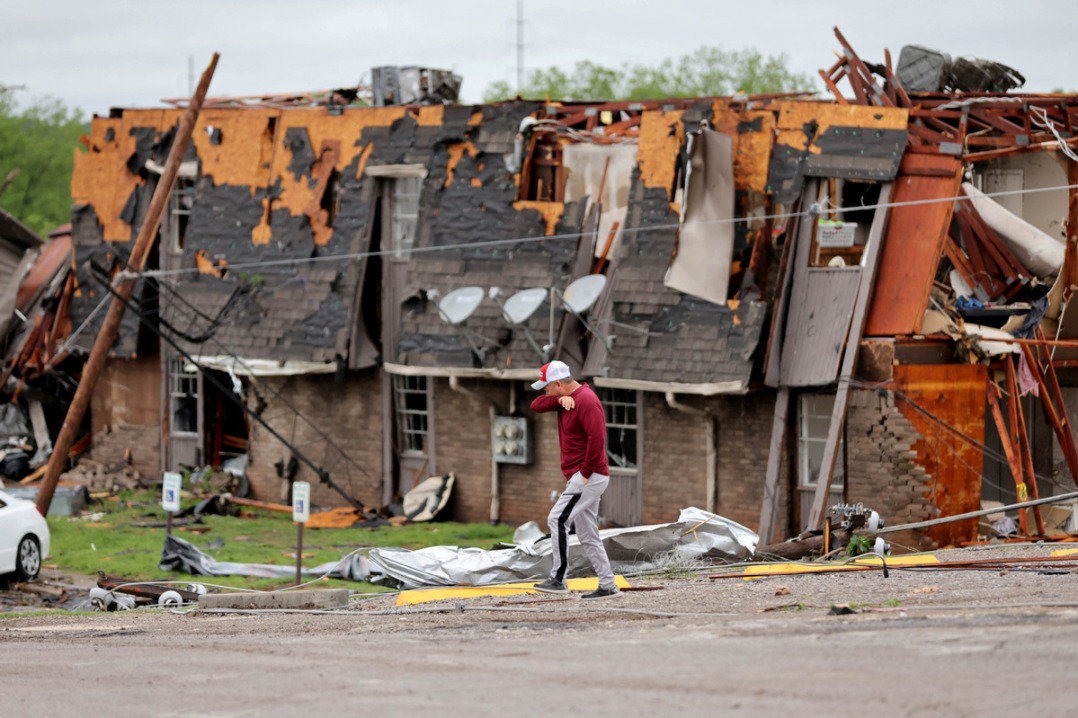Social distancing may be in place for months
By ANGUS McNEICE in London | China Daily Global | Updated: 2020-03-19 09:21

UK will ramp up testing to 25,000 a day and prioritize crucial health workers
The last week has seen some significant adjustments in the British response to the COVID-19 crisis.
Last Friday, United Kingdom Prime Minister Boris Johnson and his scientific advisors urged those who felt ill to stay home. Now, the government is advising people to practice social distancing and to avoid non-essential travel.
On Tuesday, Johnson warned that more "extreme measures" may be on the horizon, prompting many to anticipate a lockdown scenario as seen in places such as Italy and China.
The increased urgency followed criticism, including from the World Health Organization, that the UK was not doing enough to address the spread of the novel coronavirus. The change in tone also came after a new study was released on Monday by researchers at the Medical Research Council Centre for Global Infectious Disease Analysis, or MRC CGIDA, at Imperial College London, whose data has informed current UK government policy on the pandemic.
The researchers looked at projections for death and infection rates in the UK under a scenario in which some measures were taken to mitigate the spread of infection, and compared these to a scenario in which a sterner strategy was put in place to suppress the spread.
According to Neil Ferguson, head of the MRC CGIDA team, a policy strategy that aims to mitigate the epidemic might reduce deaths by 50 percent and reduce peak healthcare demand by two-thirds.
However, this scenario may still lead to 250,000 people dying from the disease in the UK.
"This will not be enough to prevent health systems being overwhelmed," Ferguson said. "More intensive, and socially disruptive interventions will therefore be required to suppress transmission to low levels. It is likely such measures-most notably, large-scale social distancing-will need to be in place for many months, perhaps until a vaccine becomes available."
While it is apparent the government has taken this new modeling into consideration, the UK is yet to implement aggressive lockdown and quarantine measures. Service continues at bars, in cafes, and restaurants, and public transport networks are still running.
Currently, schools in the UK remain open, although the government announced on Wednesday all will close for an unspecified period at the end of class on Friday. Some provision will be made to support parents in key sectors who cannot find childcare.
Justin Varney, the director of public health for the city council of Birmingham, the second-largest city in the UK, says the government is rightly considering the economic upheaval that more aggressive measures would incur. He also said the UK is "a few weeks behind most of mainland Europe" in terms of the progression of the epidemic.
"There is a balance between taking steps which protect life and will also have massive economic and societal consequences and will go on for months," Varney said. "What the government is doing is trying to balance the number of people who are seriously ill with the capacity of the health service while the infection spreads, this is not an easy task."
Varney said one of his biggest concerns is the spread of misinformation regarding COVID-19.
"If I wanted to see one thing, it would be that the public check the facts before following some of the click-bait snake oil being promoted by people trying to take advantage," he said. "This is not a time to panic and every time you share this kind of sensational irresponsible content, you could be putting someone at risk."
Deenan Pillay, professor of virology at University College London, said he welcomes some of the measures the government announced this week, although he is concerned that testing for infections remains inadequate in the UK.
"I was surprised that there wasn't more said about social distancing last week, and, of course, now we have seen there is a significant ramp up," Pillay said. "But if I had one view here, which has not yet been reached by the government, it is about much more active testing."
Testing in the UK has been mainly limited to hospitals. Pillay said it is essential that it is expanded into the wider community, and he is also calling for more testing of doctors and nurses.
"It may be better to be much more aggressive, particularly with higher-risk individuals," he said.
World Health Organization Director General Tedros Adhanom Ghebreyesus criticized countries that had not yet initiated robust testing programs on Monday, saying services "cannot fight a fire blindfolded" and encouraged nations to "test, test, test".
On Wednesday, Johnson said the UK will ramp up its testing, to 25,000 tests a day, and that it will indeed prioritize health workers.
























